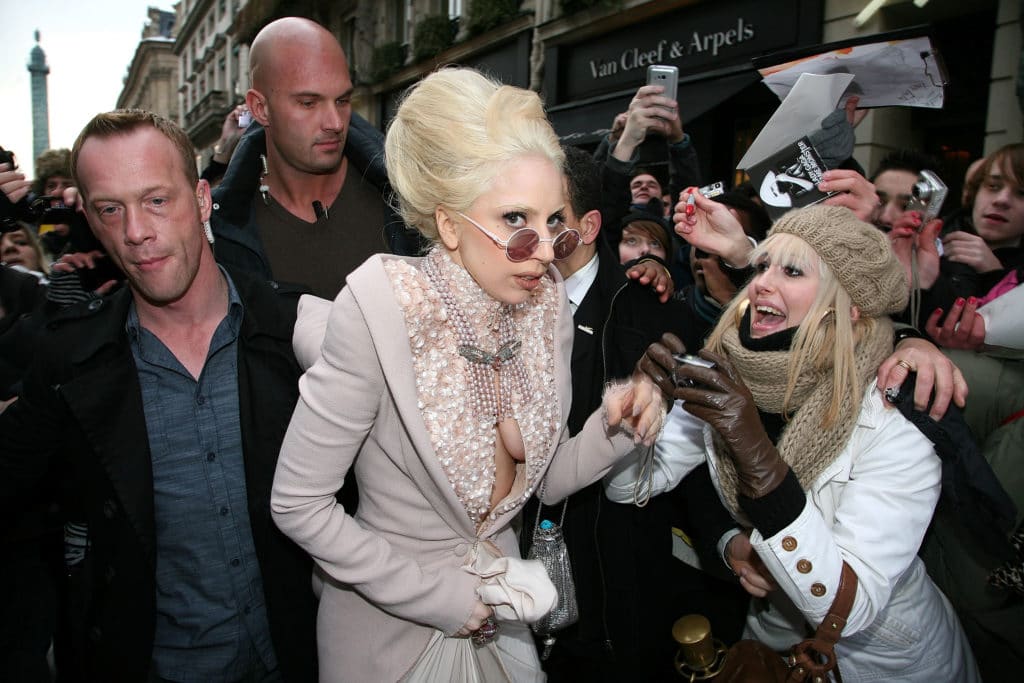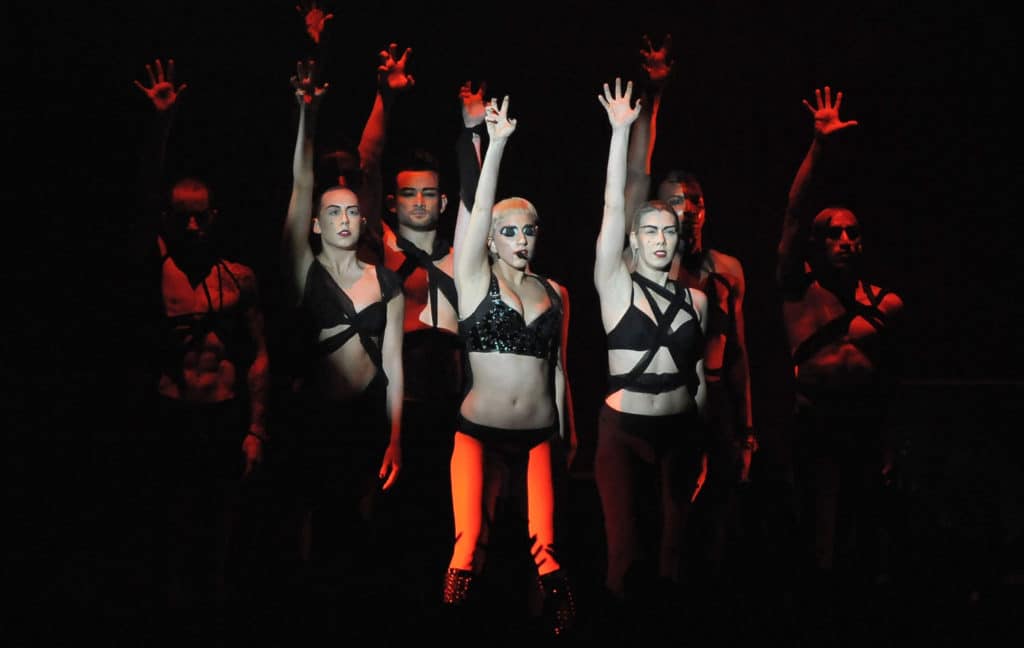5 things you probably didn’t know about Lady Gaga’s astonishing LGBT+ anthem Born This Way

Lady Gaga in the music video for ‘Born This Way’. (Screen capture via YouTube)
Lady Gaga’s “Born This Way” was released 10 years ago, on 11 February, 2011, and within nanoseconds became an unapologetically queer anthem.
You’ve heard it everywhere. Pumped out during Pride parades. Blasted from the speakers of clubs. And, for a select few, playing out of your computer while you played the Lady Gaga Farmville spinoff, Gagaville.
With its jangly disco beats, Lady Gaga released “Born This Way” at a time when she seemingly spun up an entirely new persona every news cycle.
It was the title track of an album that was truly peak Gaga, a funhouse of music that juddered between churchy organs and rakish paganistic rock. But “Born This Way” was the album’s manifesto.
As much as its lyrics sound like an empowering statement of authenticity at their best and an after-school special at their, er, not as best, “Born This Way” remains a defiant song about living your truth.
A decade on, here are five things you didn’t know about “Born This Way”.
1. Lady Gaga wrote ‘Born This Way’ in 10 minutes in an act of ‘immaculate conception’.

Lady Gaga. (Brian Rasic/Getty Images)
Lady Gaga wrote most of Born This Way while on the road – recording music in-between belting out The Fame for hours onstage for her Monster Ball tour. Gaga multitasks.
Speaking to Vogue magazine, she said that Elton John called “Born This Way” the gayest song” he had ever heard.
“I wrote it in ten f***ng minutes,” she added, “and it is a completely magical message song.
“And after I wrote it, the gates just opened, and the songs kept coming. It was like an immaculate conception.”
2. It was Lady Gaga’s ‘this-is-who-the-f*k-I-am anthem’.

Lady Gaga sighted leaving her hotel in Paris, France. (Marc Piasecki/FilmMagic)
Lady Gaga elaborated on her motivations for writing “Born This Way” to Billboard, saying that she sought to blend defiance and dance together.
“I want to write my this-is-who-the-f**k-I-am anthem,” she said, “but I don’t want it to be hidden in poetic wizardry and metaphors. I want it to be an attack, an assault on the issue because I think, especially in today’s music, everything gets kind of washy sometimes and the message gets hidden in the lyrical play.
“Harkening back to the early ’90s, when Madonna, En Vogue, Whitney Houston and TLC were making very empowering music for women and the gay community and all kind of disenfranchised communities, the lyrics and the melodies were very poignant and very gospel and very spiritual and I said: ‘That’s the kind of record I need to make. That’s the record that’s going to shake up the industry.’
“It’s not about the track. It’s not about production. It’s about the song. Anyone could sing ‘Born This Way’. It could’ve been anyone.”
3. The music video references everyone from Michelangelo to Michael Jackson.
Lady Gaga is never one for simplicity. Often letting concept take the wheel, “Born This Way” – with Gaga giving birth to a new race to the opening music of Vertigo – is no exception.
Clocking in at almost seven-and-a-half minutes, Gaga rammed the music video with a slew of symbol, including a unicorn that serves as a metaphor for strength in the Hebrew Bible and a scene of evil bodies writing on top of one another pulled straight out of Michelangelo’s Last Judgment.
And there’s more. Nods to Madonna, Salvador Dalí and Michal Jackson, tributes to Alvin Ailey’s 1960 ballet, Revelations, and the pink triangle.
4. She premiered the song at the 2011 Grammy Awards – but teased it a year prior.

Lady Gaga arrives at The 53rd Annual GRAMMY Awards. (Kevin Mazur/WireImage)
Lady Gaga’s first live performance of “Born This Way” was at the 2011 Grammy Awards – you know, the one where she opted to get there not by taxi, but by egg. But she actually teased the lyrics the year before.
While accepting the 2010 MTV Video Music Award for Video of the Year, for “Bad Romance”, Gaga revealed the name of the then-upcoming Born This Way album.
She then sang what the Rolling Stone guessed was “probably the disc’s title track”, belting out: “I’m beautiful in my way because God makes no mistakes, I’m on the right track, baby I was born this way.”
5. Radio stations in Malaysia censored the song for being pro-LGBT+.

Lady Gaga performs ‘Born This Way’ during MTV Video Misic Aid in 2011. (Getty)
Radio stations in Malaysia bleeped out the song’s lyric, “gay, straight or bi, lesbian [or] transgendered”, as they considered it “offensive when viewed against Malaysia’s social and religious observances”, AMP Radio Networks said in a 2011 statement.
In Malaysia, LGBT+ citizens face state-sanctioned hostility – caning, fines, deportation and hefty 20-years-long jail sentences. Years later, and lawmakers are even considering amping up LGBT+ persecution even further, deeply alarming activists.
Gaga urged her Malaysian fans to fight back against the censorship, saying: “It is your job and it is your duty as young people to have your voices heard.
“You must do everything that you can if you want to be liberated by your society. You must call, you must not stop, you must protest peaceably.”

